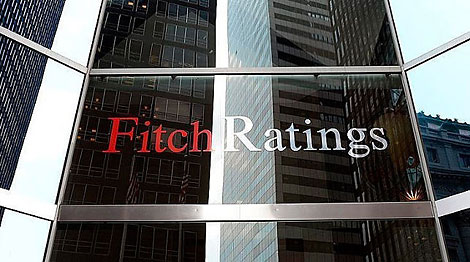Business news
Fitch affirms three Belarusian banks at 'B'
 MINSK, 19 June (BelTA) - Fitch Ratings has affirmed three Belarus-based state-owned banks - Belarusbank (BBK); Belinvestbank (BIB); and Development Bank of the Republic of Belarus (DBRB) - at Long-Term Issuer Default Ratings (IDR)'B' with Stable Outlook, BelTA informs with reference to the agency's press release.
MINSK, 19 June (BelTA) - Fitch Ratings has affirmed three Belarus-based state-owned banks - Belarusbank (BBK); Belinvestbank (BIB); and Development Bank of the Republic of Belarus (DBRB) - at Long-Term Issuer Default Ratings (IDR)'B' with Stable Outlook, BelTA informs with reference to the agency's press release.
Equalisation of the ratings of the banks with the respective Long-Term IDRs of the sovereign is based on Fitch's opinion of the sovereign's high propensity to support these institutions, if required.
Fitch’s view is based on majority state ownership (State Property Committee of the Republic of Belarus owns 98.76% in BBK and 97.48% in BIB and Council of Ministers of Belarus owns 95.473% in DBRB) and supervision by senior state officials through supervisory board representation. It also factors in the banks', in particular BBK's, high systemic importance; the banks policy roles (legally defined for DBRB but also significant at BBK); the government's subsidiary liability on DBRB's bond obligations; and a track record of support made available in various ways (equity injections, buy-out of bad loans, provision of liquidity, etc.) to these banks to date. However, the low rating levels continue to capture the authorities' limited ability to provide support to the banks.
Capital support was previously made available for all three banks. BBK and DBRB saw their most recent share issuance in 2015 and BIB converted state-held subordinated debt into equity in 2016. BBK and BIB also further benefited, to some extent, from transfers of bad loans, partly to DBRB, in recent years.
DBRB currently expects a core capital injection from the state to be forthcoming during 2018. Fitch believes the government's plans to sell a 25% equity stake in BIB to European Bank for Reconstruction and Development (AAA/Stable) will not materially alter the authorities' propensity to support the bank as long as the government holds a controlling stake while some pre-sale support could not be excluded.
The IDRs could be upgraded, if Belarus is upgraded, or downgraded, in case of a sovereign downgrade. The banks' IDRs could also be downgraded, and hence notched off the sovereign, if timely support is not provided, when needed, or if the cost of potential support increases significantly relative to the sovereign's ability to provide it.







 print version
print version make home page
make home page add to bookmarks
add to bookmarks

